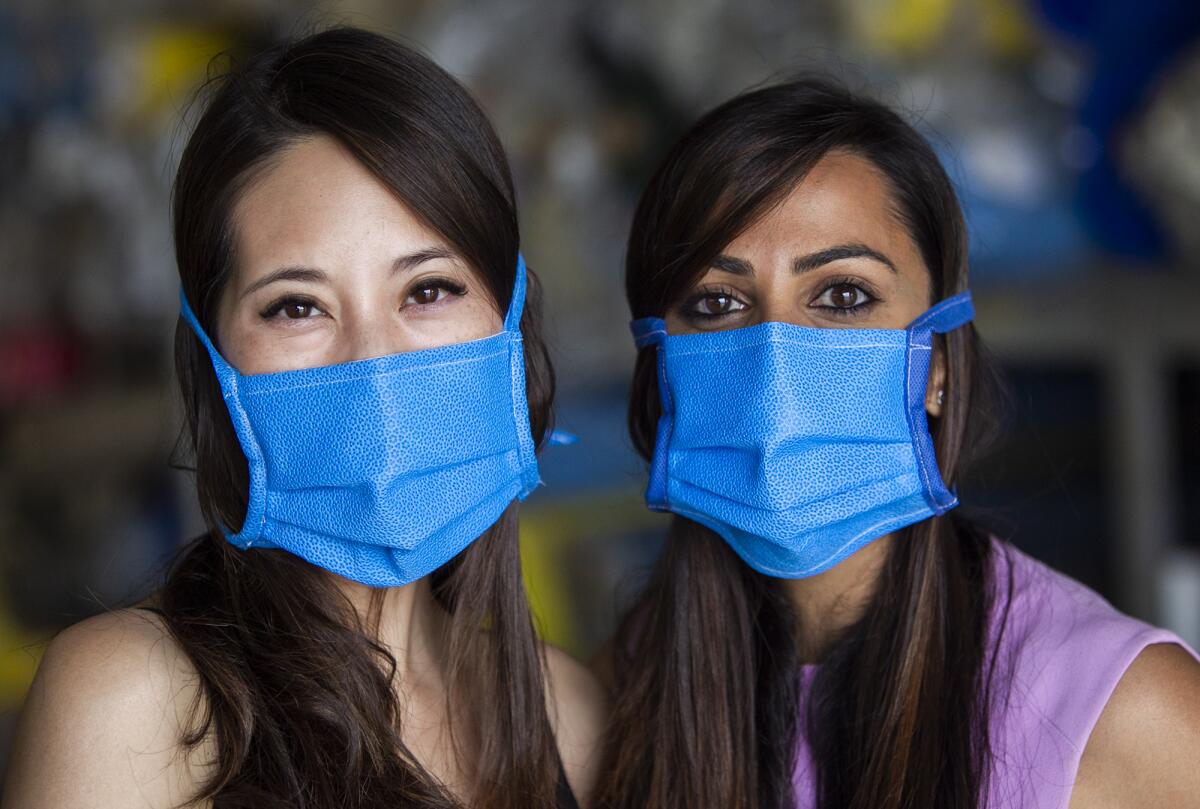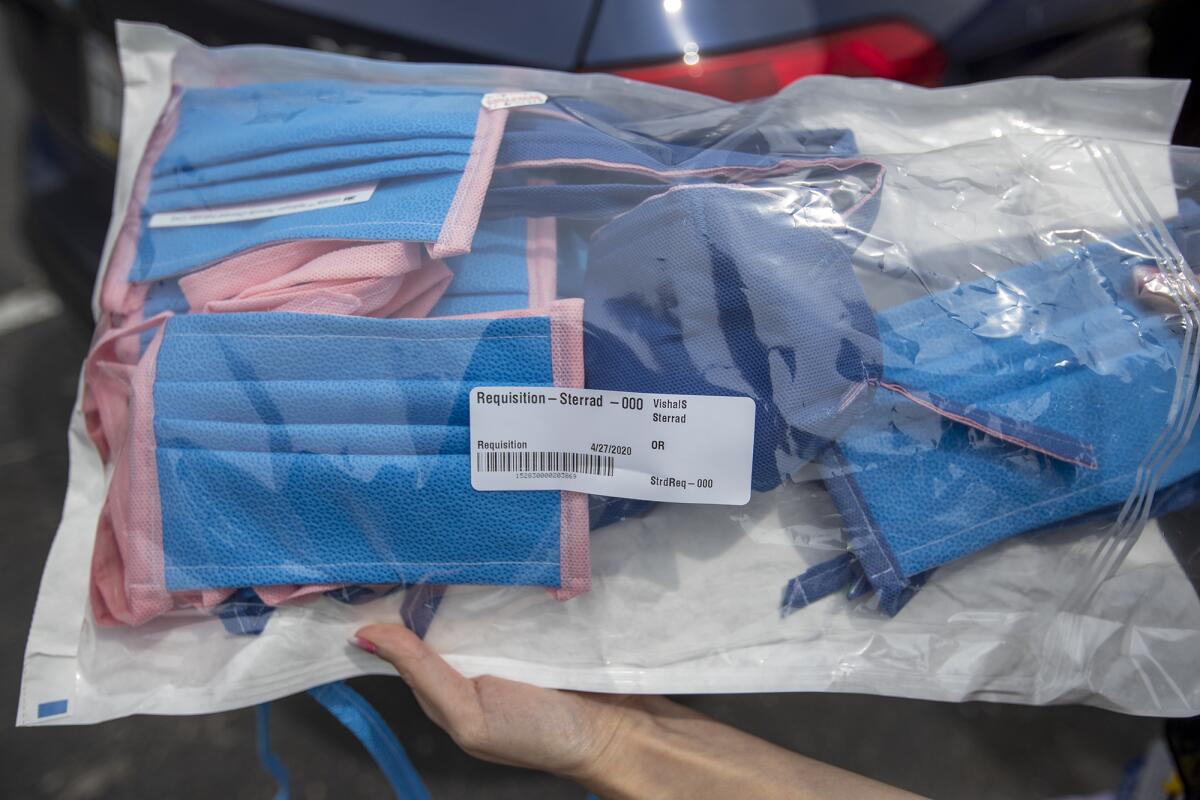UC Irvine physicians produce masks for underserved communities
- Share via
Early in the pandemic, two UC Irvine physicians started producing face masks for hospital workers from a material used to sterilize surgical equipment.
Dr. Aditi Sharma, a resident physician in the UC Irvine Health dermatology department, and anesthesiologist Dr. Melissa Chang put their recycling plan into action as hospitals were contending with shortages of N95 masks, which are a mainstay in the medical community and have a filtration efficiency of 95%. The sterilization wraps are made from recyclable material and can filter up to 87% of particles.
The pair formed a nonprofit, Recyclablu, and produced 10,000 masks for UCI Health employees from 1,200 pounds of medical waste. The nonprofit works with local seamstresses to manufacture the masks.
The nonprofit has presented its prototype and recycling initiative to the World Health Organization and was accepted into the 2021 WHO Compendium of Medical Devices for COVID-19.
“That will allow us to disseminate not only our protocols for how we collect and recycle our material, but also how we’ve manufactured so that countries that are struggling with the COVID-19 pandemic will be able to then implement similar initiatives in the case that they’re facing face mask shortages,” Sharma said in a phone interview.

Now that face mask shortages aren’t as crucial for hospitals, the physicians are focusing on producing masks for underserved communities.
In partnership with the Union Rescue Mission and UCLA Health, the nonprofit recycled 1,000 pounds of medical waste to produce 4,500 masks for homeless people in Los Angeles. Those masks were passed out last week.
Sharma said the nonprofit will also focus on shipping masks internationally to underserved communities.
“We can’t thank Recyclablu enough,” said Rev. Andy Bales, Union Rescue Mission president and chief executive. “Like other groups, their generosity has kept our guests as safe as we can possibly be as we’ve been in the battle to save lives. This has really been the toughest battle of our 130-year history and we wouldn’t have made it through without groups like Recyclablu stepping up in unprecedented ways.”
The Rescue Mission serves about 1,000 homeless people. Bales said there hasn’t been a deficit of masks for the homeless due to the generosity of groups like Recyclablu.
Sharma said the nonprofit will be implementing a campaign where Recyclablu will donate a mask to a local or international underserved community for every purchase of a mask.
Sharma said they are speaking with nonprofits in India to potentially distribute the masks to underserved populations.
“It is really our great hope that this recycling initiative is just the beginning of a bigger movement towards sustainability within the medical field,” Sharma said. “Recyclablu hopes to continue to be a catalyst in promoting the medical field to think about how we can recycle and repurpose many of the materials that we are using in the hospital to reduce the waste we are producing.”

UCLA Health is now transporting its medical waste to Irvine for Recyclablu to produce the masks.
“It’s just a great way that we can use this material and have it for one more use before ultimately ending up in a landfill,” said James Evans, sustainability programs manager with UCLA Health.
Sharma said masks will continue to be important during the pandemic, despite the Centers for Disease Control and Prevention’s controversial recent decision to ease its recommendations on wearing masks in public for vaccinated people.
Following that announcement, California officials said the state won’t relax its mask rules until June 15, when it’s slated to reopen its economy fully. Many experts have also said it’s important to continue wearing masks.
“We should be cautious and continue to mask up until we can get the greater population vaccinated,” Sharma said.
All the latest on Orange County from Orange County.
Get our free TimesOC newsletter.
You may occasionally receive promotional content from the Daily Pilot.




